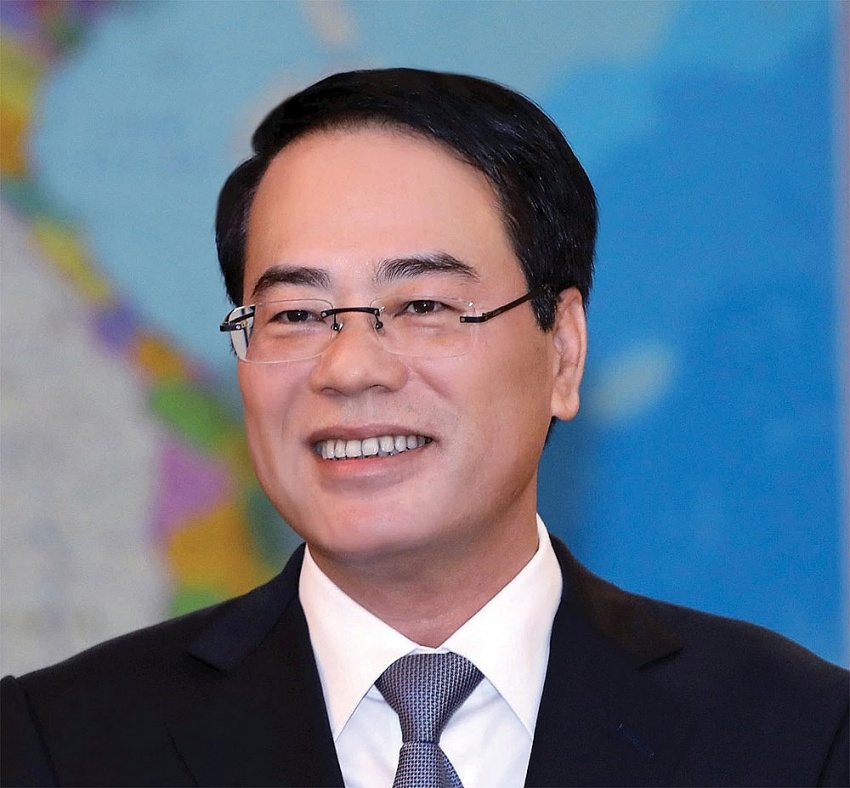INTERNATIONAL INVESTMENT
AND PORTAL
Climate change is evolving in complex ways, with unprecedented extreme weather events occurring in some regions. According to a January report by the World Meteorological Organization, 2024 was the hottest year on record, with abnormal temperatures on land and ocean surfaces, record-high ocean temperatures, and extreme weather events affecting many countries worldwide.
In Vietnam, several cities adn provinces recorded their highest temperatures ever, notably in Dong Ha district in Quang Tri province, where the temperature reached 44 degrees on April 28, 2024, the highest since 1976.
 Tang The Cuong, general director, Department of Climate Change, Ministry of Agriculture and Environment
Tang The Cuong, general director, Department of Climate Change, Ministry of Agriculture and Environment
Rapid urbanisation in recent years has intensified the “urban heat island” effect, where urban areas are significantly warmer than surrounding rural areas, with temperature differences of 3-5 degrees during peak heat days. This is caused by low vegetation cover, high construction density, the use of heat-absorbing materials in buildings, and concentrated production and residential activities in densely populated urban areas.
Rising temperatures and urbanisation have significantly increased the demand for cooling devices, with electricity consumption for cooling reaching approximately 71.4TWh, accounting for 25.2 per cent of national electricity consumption, and projected to triple by 2050.
This surge has led to increased use of refrigerants that deplete the ozone layer and contribute to global warming, in addition to greenhouse gas (GHG) emissions from fossil fuel use. This poses an urgent need for the government to manage GHG emissions and protect the ozone layer while meeting global climate change response targets.
Vietnam joined the Fluorocarbon Life-Cycle Management Initiative and the Cooling Efficiency Alliance in 2020, committed to the Global Cooling Pledge in 2023, and issued an official plan for the management and elimination of ozone-depleting substances and GHGs. This plan outlines numerous tasks and solutions for cooling in urban and rural areas and sets a roadmap for sustainable cooling actions. The cooling sector is identified as directly contributing to achieving GHG emission reduction targets under the UN’s Nationally Determined Contribution (NDC).
To manage controlled substances under the Montreal Protocol and promote low-carbon, energy-efficient, and sustainable cooling solutions, the Climate Change Department has collaborated with international partners to develop the National Cooling Action Plan (NCAP). This programme is designed to comprehensively contribute to NDC goals and achieve net-zero emissions by 2050.
The Ministry of Agriculture and Environment has also updated policies related to the cooling sector. The National Climate Change Strategy to 2050, the updated NDCs in 2022, and other legislation outline key measures, such as phasing out refrigerants with high global warming potential, promoting passive cooling, using low-emission building materials, and developing cooling-as-a-service business models.
Additionally, new legal regulations in 2025 include an amended decree on GHG emission reduction and ozone layer protection, and an amended circular which introduces the concept of sustainable cooling into legal frameworks for the first time.
To finalise the draft NCAP, the Department of Climate Change welcomes feedback to ensure the feasibility of proposed solutions. These inputs will help forecast national cooling demands and investment needs for cooling projects, as well as establish a clear implementation roadmap.
This is also an opportunity to propose cooperative initiatives, knowledge sharing, technology transfer, and sustainable community cooling models.
In rural areas, under the plan to manage ozone-depleting substances and GHGs, the prime minister also directed people’s committees of localities to integrate urban and rural cooling measures into urban protection plans, particularly for tier 1 and 2 cities.
By The Cuong



















